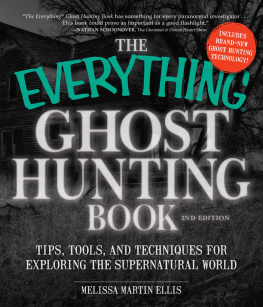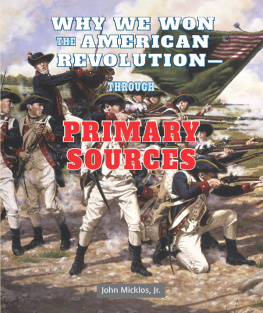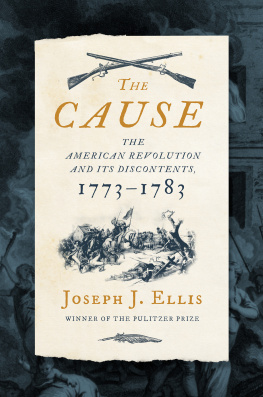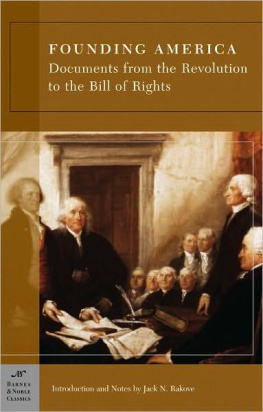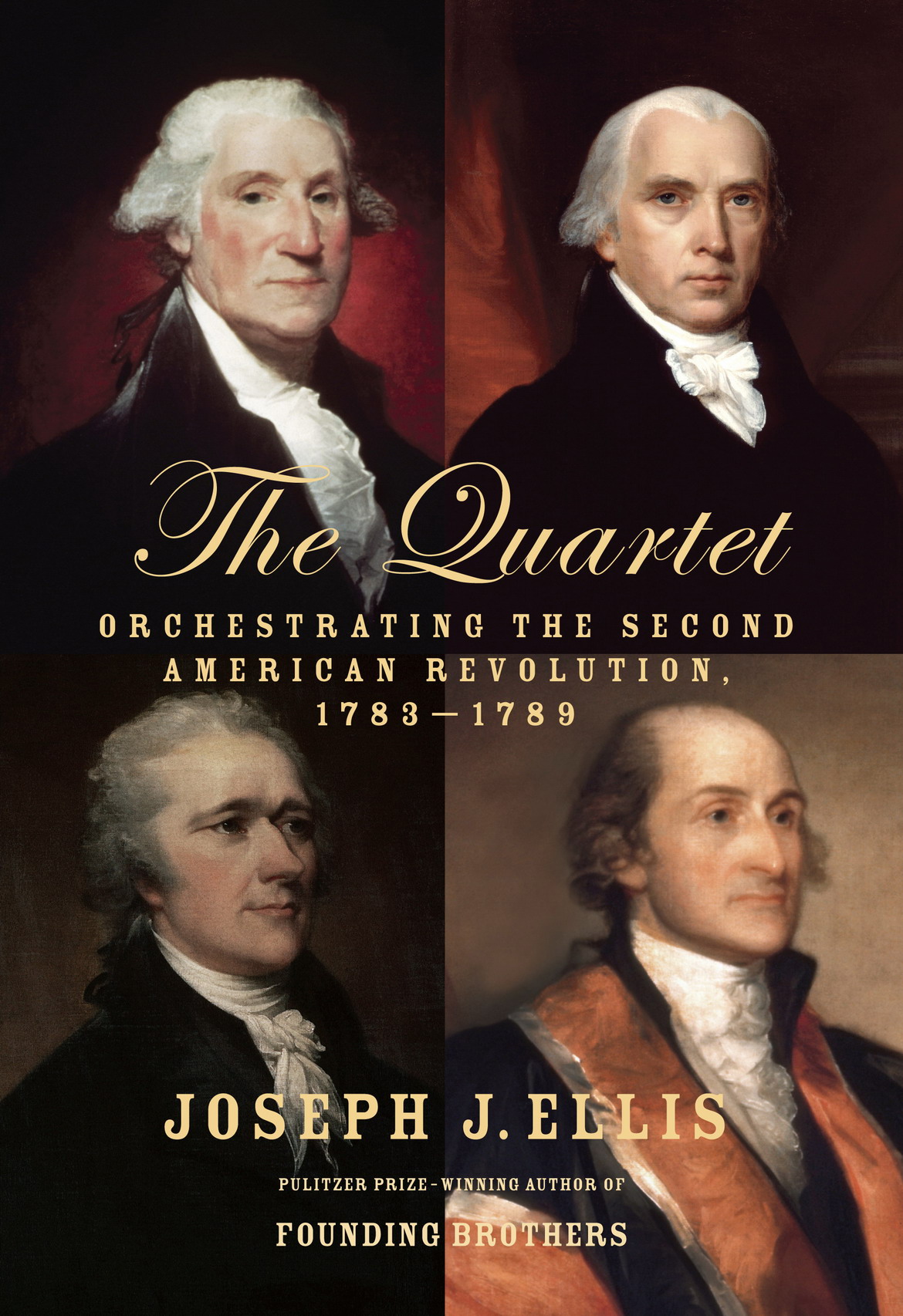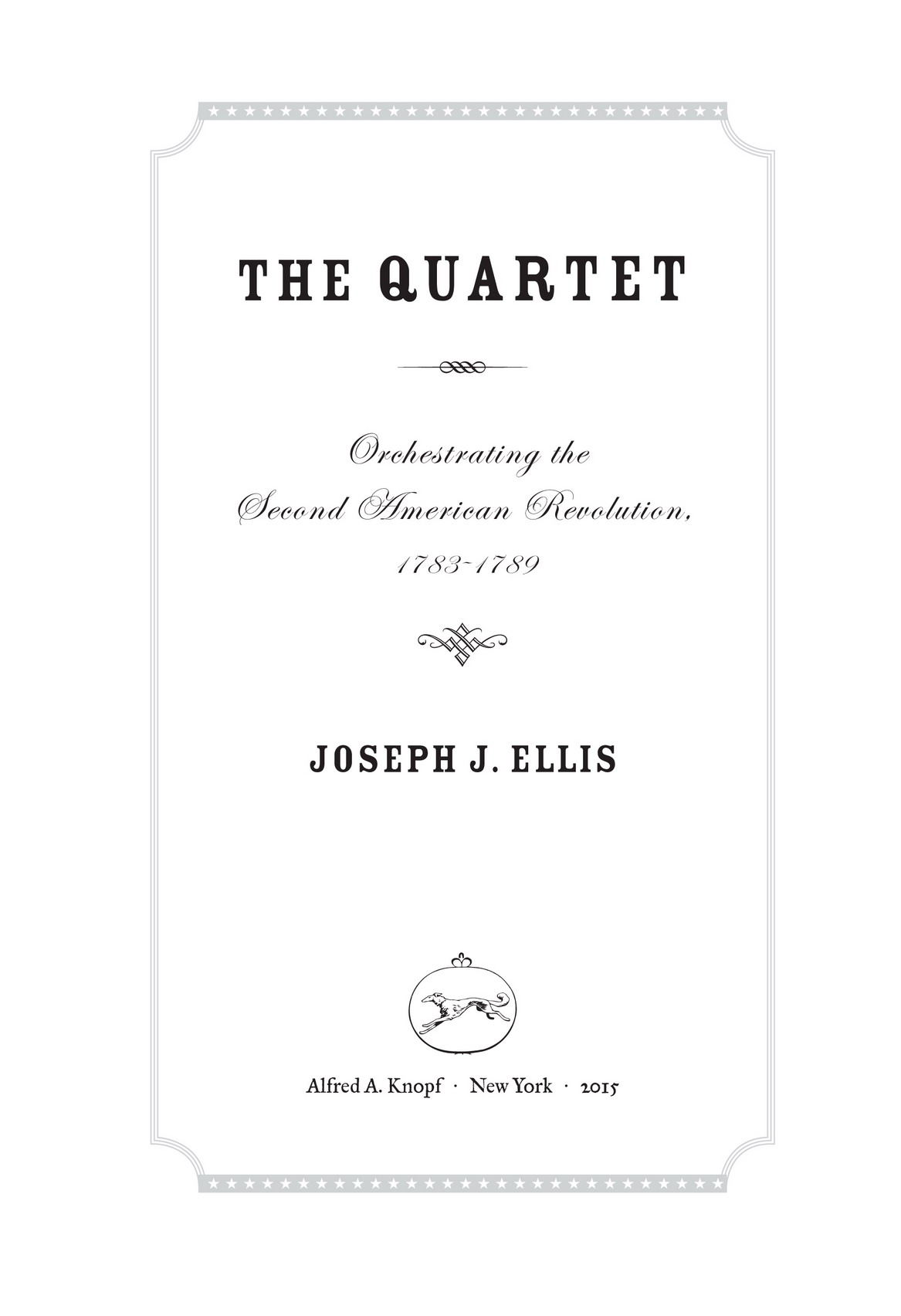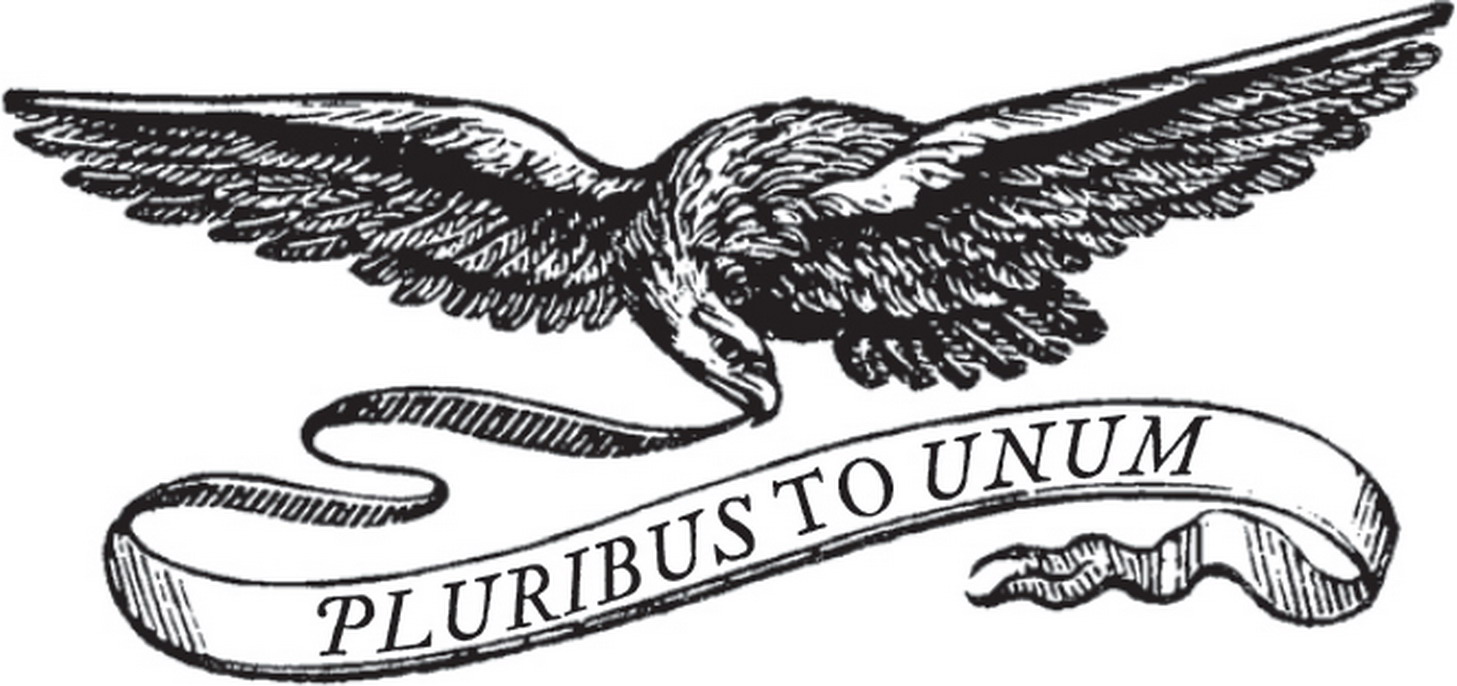Contents
ALSO BY JOSEPH J. ELLIS
Revolutionary Summer: The Birth of American Independence
First Family: Abigail and John Adams
American Creation: Triumphs and Tragedies at the Founding of the Republic
His Excellency: George Washington
Founding Brothers: The Revolutionary Generation
American Sphinx: The Character of Thomas Jefferson
Passionate Sage: The Character and Legacy of John Adams
After the Revolution: Profiles of Early American Culture
School for Soldiers: West Point and the Profession of Arms (with Robert Moore)
The New England Mind in Translation
THIS IS A BORZOI BOOK
PUBLISHED BY ALFRED A. KNOPF
Copyright 2015 by Joseph J. Ellis
All rights reserved. Published in the United States by Alfred A. Knopf, a division of Penguin Random House LLC, New York, and distributed in Canada by Random House of Canada, a division of Penguin Random House Ltd., Toronto.
www.aaknopf.com
Knopf, Borzoi Books, and the colophon are registered trademarks of Penguin Random House LLC.
Library of Congress Cataloging-in-Publication Data is available.
ISBN9780385353403 (hardcover)
eBook ISBN9780385353410
Cover images (clockwise, upper left, details): George Washington (Vaughan Portrait) by Gilbert Stuart, 1795 Bettmann/Corbis; James Madison by John Vanderlyn, 1816 Corbis; John Jay by Gilbert Stuart, 1794 Francis G. Mayer/Corbis; Alexander Hamilton by John Trumbull, 1806 Francis G. Mayer/Corbis
Cover design by Carol Devine Carson
v4.1_r4
a
In memory of Pauline Maier
CONTENTS
Preface
PLURIBUSTOUNUM
Chapter 1
THE ARTICLES AND THE VISION
Chapter 2
THE FINANCIER AND THE PRODIGY
Chapter 3
THE DOMAIN
Chapter 4
THE COURTING
Chapter 5
MADISONS MOMENT
Chapter 6
THE GREAT DEBATE
Chapter 7
FINAL PIECES
Appendix A
THE ARTICLES OF CONFEDERATION AND PERPETUAL UNION
Appendix B
CONSTITUTION OF THE UNITED STATES
Appendix C
THE BILL OF RIGHTS
PREFACE
T he idea for this book first came to me while listening to twenty-eight middle school boys recite the Gettysburg Address from memory in front of their classmates and proud parents. My son Scott was teaching science at the Greenwood School in Putney, Vermont, and had invited me to judge the annual oratorical contest. I dont remember exactly when it happened, but at some point during the strenuous if repetitious effort to get Lincolns words right, it dawned on me that the first clause in the first sentence of Lincolns famous speech was historically incorrect.
Lincoln began as follows: Four score and seven years ago our fathers brought forth on this Continent a new Nation. No, not really. In 1776 thirteen American colonies declared themselves independent states that came together temporarily to win the war, then would go their separate ways. The government they created in 1781, called the Articles of Confederation, was not really much of a government at all and was never intended to be. It was, instead, what one historian has called a Peace Pact among sovereign states that regarded themselves as mini-nations of their own, that came together voluntarily for mutual security in a domestic version of a League of Nations.
And once you started thinking along these lines, there were reasons as self-evident as Jeffersons famous truths why no such thing as a coherent American nation could possibly have emerged after independence was won. Politically, a state-based framework followed naturally from the arguments that the colonies had been hurling at the British ministry for over a decade, which denied Parliaments right to tax them because that authority resided within the respective
Distance also made a huge difference. The vast majority of Americans were born, lived out their lives, and died within a thirty-mile geographic radius. It took three weeks for a letter to get from Boston to Philadelphia. Political horizons and allegiances, therefore, were limitedobviously no such things as radios, cell phones, or the Internet existed to solve the distance problemso the ideal political unit was the town or county government, where representatives could be trusted to defend your interests because they shared them as your neighbors.
Indeed, it was presumed that any faraway national government would represent a domestic version of Parliament, too removed from the interests and experiences of the American citizenry to be trusted. And distrusting such distant sources of political power had become a core ideological impulse of the movement for independence, often assuming quasi-paranoid hostility toward any projection of power from London and Whitehall, which was described as inherently arbitrary, imperious, and corrupt. And so creating a national government was the last thing on the minds of American revolutionaries, since such a distant source of political power embodied all the tyrannical tendencies that patriotic Americans believed they were rebelling against.
In 1863 Lincoln had some compelling reasons for bending the arc of American history in a national direction, since he was then waging a civil war on behalf of a union that he claimed predated the existence of the states. This was a fundamental distortion of how history happened, though we may wish to forgive Lincoln, since it was the only way for him to claim the political authority to end slavery.



